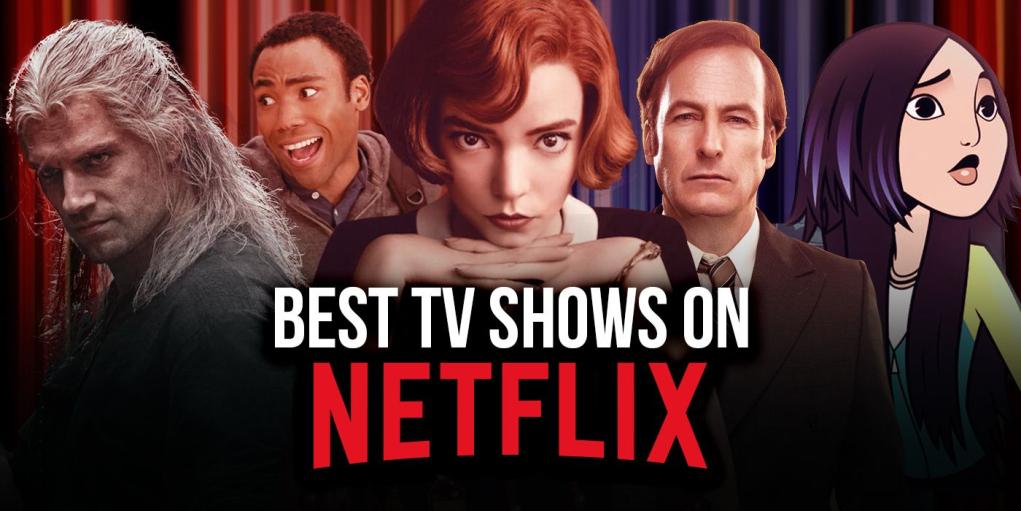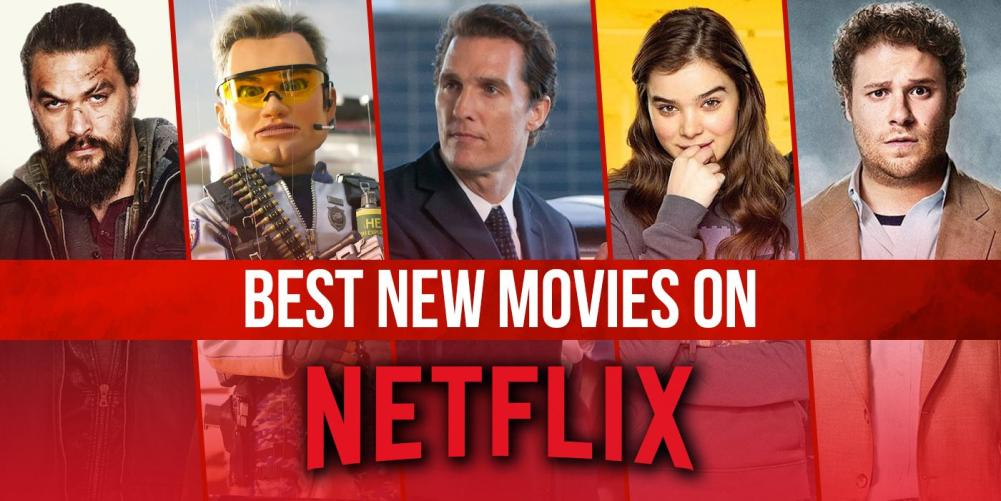How Has Netflix Revolutionized the Way We Consume Entertainment?
Netflix has transformed the entertainment industry, revolutionizing the way we consume and engage with movies, TV shows, and other forms of media. From its humble beginnings as a DVD rental service to its current status as a global streaming giant, Netflix has disrupted traditional viewing habits and redefined the entertainment landscape.

The Rise Of Netflix
- Brief history of Netflix's journey from a DVD rental service to a streaming giant:
- Key factors that contributed to Netflix's success:
- First-mover advantage: Netflix was one of the first companies to offer a streaming service, giving it a significant advantage over competitors.
- User-friendly interface: Netflix's user interface is simple and intuitive, making it easy for users to find and watch content.
- Extensive content library: Netflix has a vast library of movies, TV shows, and other content, catering to a wide range of tastes and preferences.
- Personalized recommendations: Netflix uses advanced algorithms to provide personalized recommendations to users, helping them discover new content they might enjoy.
Netflix was founded in 1997 as a DVD rental service by Reed Hastings and Marc Randolph. The company initially operated through a mail-order system, allowing customers to rent DVDs by mail. In 2007, Netflix launched its streaming service, which allowed users to watch movies and TV shows online. This move marked a significant shift in the company's strategy and paved the way for its future success.
The Impact Of Netflix On The Entertainment Industry
- Disruption of traditional TV and movie viewing habits:
- Rise of on-demand content and binge-watching culture:
- Changing dynamics of content creation and distribution:
Netflix has significantly disrupted traditional TV and movie viewing habits. With its on-demand content and binge-watching culture, Netflix has changed the way people consume entertainment. Instead of waiting for a specific time to watch a show or movie, viewers can now watch it whenever and wherever they want.
Netflix has popularized the concept of on-demand content and binge-watching. Viewers can now watch entire seasons of a show in one sitting, rather than having to wait a week or more for the next episode. This has led to a shift in viewing patterns and has created a new way of engaging with content.

Netflix's success has also changed the dynamics of content creation and distribution. The company's investment in original programming has led to a surge in high-quality TV shows and movies. Additionally, Netflix's global reach has allowed content creators to reach a wider audience, breaking down geographical barriers and opening up new opportunities for collaboration.
How Netflix Has Revolutionized Entertainment Consumption
- Convenience and Accessibility:
- The ability to watch content anytime, anywhere, and on any device: Netflix's streaming service allows users to watch content on a variety of devices, including TVs, computers, smartphones, and tablets. This convenience and accessibility have made Netflix a popular choice for entertainment.
- Elimination of geographic and time constraints: Netflix's global reach means that users can access content from anywhere in the world. Additionally, the on-demand nature of the service eliminates the need to wait for specific times to watch a show or movie.
- Increased accessibility for people with disabilities: Netflix offers a range of accessibility features, such as closed captions, audio descriptions, and keyboard navigation, making its content more accessible for people with disabilities.
- Personalized Recommendations:
- Netflix's advanced algorithms provide tailored recommendations based on viewing history and preferences: This personalized approach helps users discover new content that they might enjoy, leading to a more engaging and satisfying viewing experience.
- Creation of a more personalized and engaging viewing experience: By understanding users' preferences, Netflix can create a more personalized and engaging viewing experience. This can include recommending content that is similar to what the user has watched in the past or suggesting new genres or titles that the user might not have otherwise considered.
- Discovery of new content and diverse genres: Netflix's personalized recommendations also help users discover new content and diverse genres that they might not have otherwise encountered. This can expand users' horizons and expose them to new perspectives and ideas.
- Original Content and Creative Freedom:
- Netflix's investment in original programming and films: Netflix has invested heavily in original programming, producing a wide range of critically acclaimed TV shows and movies. This investment has helped to attract new subscribers and has established Netflix as a major player in the entertainment industry.
- Greater creative freedom and flexibility for content creators: Netflix's investment in original content has also given content creators greater creative freedom and flexibility. This has led to the creation of innovative and groundbreaking shows and movies that might not have been possible under traditional studio systems.
- Emergence of critically acclaimed and award-winning shows: Netflix's original programming has received widespread critical acclaim and has won numerous awards. This recognition has further solidified Netflix's position as a major player in the entertainment industry and has attracted even more subscribers.
The Changing Landscape Of Entertainment
- The Decline of Traditional TV:
- Decrease in viewership of linear TV channels: Netflix's rise has led to a decline in viewership of traditional linear TV channels. As more and more people turn to streaming services for their entertainment, traditional TV networks have seen their audience share decline.
- Shift towards streaming services and on-demand content: The shift towards streaming services and on-demand content has also impacted traditional TV business models. Advertising revenue, which has been a major source of income for traditional TV networks, has declined as more viewers move away from linear TV.
- Impact on advertising revenue and traditional TV business models: The decline in viewership of traditional TV has also impacted advertising revenue and traditional TV business models. As more viewers move away from linear TV, advertisers are shifting their budgets towards streaming services and other digital platforms.
- The Rise of Streaming Wars:
- Emergence of multiple streaming platforms competing for subscribers: The success of Netflix has led to the emergence of multiple streaming platforms, each competing for subscribers. This has resulted in a highly competitive market, with each platform investing heavily in original content and marketing to attract and retain subscribers.
- Increased investment in original content and marketing: The streaming wars have led to a significant increase in investment in original content and marketing. Streaming platforms are spending billions of dollars to produce high-quality shows and movies, and they are also investing heavily in marketing campaigns to promote their content and attract subscribers.
- Consolidation and mergers in the streaming industry: The intense competition in the streaming industry has also led to consolidation and mergers. Several streaming platforms have merged or been acquired by larger companies, resulting in a more concentrated market.
- The Future of Entertainment:
- Predictions for the future of content consumption and distribution: The future of entertainment is uncertain, but there are several predictions about how content consumption and distribution will evolve. Some experts believe that streaming services will continue to dominate, while others believe that new technologies, such as virtual reality and artificial intelligence, will play a significant role in shaping the future of entertainment.
- Role of emerging technologies like virtual reality and artificial intelligence: Emerging technologies, such as virtual reality and artificial intelligence, have the potential to transform the entertainment industry. Virtual reality can create immersive experiences that transport viewers to new worlds, while artificial intelligence can be used to personalize content recommendations and create more engaging experiences.
- The convergence of entertainment and other industries: The entertainment industry is also converging with other industries, such as technology, gaming, and social media. This convergence is creating new opportunities for collaboration and innovation, and it is likely to shape the future of entertainment in significant ways.
Netflix has revolutionized the way we consume entertainment. Its convenience, accessibility, personalized recommendations, and investment in original content have made it a major player in the entertainment industry. As the streaming wars continue to heat up and new technologies emerge, it will be interesting to see how Netflix and other streaming platforms continue to shape the future of entertainment.
YesNo

Leave a Reply